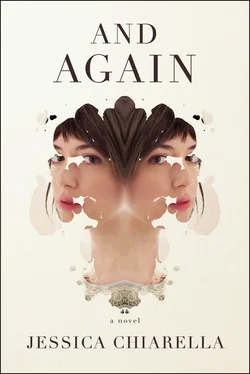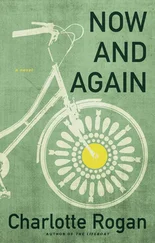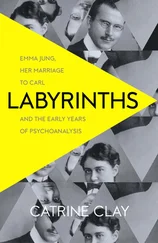The doctor wanted my consent to do it, even though Tom still had power of attorney over my medical decisions. The risk of death was too great, I guess, for them to cut into my brain without my permission. I gave it readily, blinking twice even before the question was complete. It seemed like the best choice possible. I would either be cured, or I’d be dead. Both options were preferable to remaining as I was.
They had to put me under general anesthesia for the transfer. It was ironic, really, because they could have sawed my legs off and I wouldn’t have felt a thing. But cutting into my skull, that was a different story. That was one of the only places I still had any feeling. Tom was there, in the operating room, hovering over me and eclipsing my view of the packed gallery above me. I watched him, from flat on my back, the slice of his eyes that showed between the gauzy scrub cap he was wearing and the mask over his face. Maybe he held my hand, I don’t know. It would have been for his own benefit, if he did. All I could do was lie there and watch his eyes and wait for the drugs to stretch everything like taffy and then blot all of it out. Wait for death if it was coming. Tom looked so afraid in those last moments. He couldn’t know how I welcomed anything that would come next, even if it was death, even if it wasn’t. All I could do was blink until my eyelids became thick with weight, and even then, again and again, yes, yes. Yes.
Nobody comes to visit me in the hospital that first week. And that’s fine because nobody was really around for the past five years when I was sick, either. They were around at first, before it got really evident that I wasn’t kidding. People seemed to care when I told them. I feel like the percentage of people who cried upon hearing of my condition was pretty impressive, especially considering the only friends I had were paid to be on set every day. But the minute it started to show, within weeks of that first KS lesion on the side of my neck, bleeding purple through all the makeup I slathered onto it, the orbit of friends and industry players around me seemed to loosen and widen. The minute people could see the disease, they began to care a whole lot less. People stopped looking at me. Which was strange, because people had been looking at me my whole life, people I didn’t even know. But the sicker I got, the more people saw the disease instead of me. It got to the point where my own mother couldn’t look me in the eye.
Looking in the mirror now feels like revenge. I’ve always had good bone structure, the kind of thing talent agents can spot in a pre-pubescent schoolgirl at a mall, the straight nose and high cheekbones and pointed chin that grows up with you no matter how much weight you lose or how deep the lines around your eyes become. Now my skin is no longer sallow and lined, my eyes aren’t ringed in deep, sucking sockets of shadow. My hair isn’t gray and sparse; my lips aren’t cracked or pocked with sores. I look like I did at twenty-five. Better, even. I’d been smoking for ten years by my twenty-fifth birthday, and my skin never looked this pristine, like polished stone, even when I was at my best. My hair is thick, back to its shining honeysuckle blonde. My lips are soft and full of blood. I smile at my reflection, winking an eye ringed with long lashes. Give me a pair of tweezers and a good blow-out and I’m Grace fucking Kelly.
Let them try and show their faces now. Those hangers-on. The agents and managers and makeup artists who fled so quickly when they realized their paychecks would fade along with my looks. Let them try and flock back now that I’ve been reborn, fully-formed, like Athena springing from Zeus’s skull. Excitement brims within me. I trace my fingertips down the perfect column of my nose, over my chin, an eyebrow, circling my eye. Checking to make sure it’s all real, it’s not some illusion brought on by whatever they’re putting in my IV. But it’s me, or at least the version of me who used to leave talent agents and directors and teenage boys slack-jawed and gaping. I’d watched this woman shrink and wrinkle like a raisin during the last five years, giving way to age and disease and despair. This woman, I think, looking at my reflection, this woman is afflicted by none of those things.
It’s a nearly breathtaking thought. I’ve spent so much of my life trying to blot out the version of myself who came before, first the long-limbed girl in cutoffs from the trailer park in Illinois, then the teenage catalog model selling trashy clothes and bubblegum, then finally the up-and-coming soap star who contracted the A3/02 strain of HIV the week her first independent film premiered at Sundance. Now I’ve got all that time back. I have no past. I was born from nothing, conceived in a tube, and grown in a lab. And show-biz has the memory of a goldfish. All I’d have to do is pick a good stage name and no one would remember the blonde girl who won a Daytime Emmy a decade before. No one would want to remember, not when I look like this now.
I’m up and walking without assistance by my second week in the hospital, though at times it still feels like my joints could flop out of place at any moment. The first thing I do is tiptoe my way down the hall when the nurse’s station is clear and Google the number for Val, my building’s maintenance guy, on one of their computers. It takes much longer than I expected. My typing is slow and dreadfully clumsy. If I close my eyes, I can imagine the placement of every letter on the keyboard, but my fingers refuse to fly over the keys like they once did. I must tell each finger where to move. When I finally find the number, I’m almost certain one of the nurses is going to catch me, but still I pick up the phone and dial.
“Yeh?” his voice comes over the line.
“Yes, this is Connie from apartment 537? I was wondering if you could do me a favor.”
“You put in a maintenance request?” Val’s accent is thick and Eastern-European, all of his consonants feel earthy and guttural over the phone.
“No, see, I just want you to knock on apartment 538, Dr. Grath’s apartment? Could you let him know that I’m away on vacation, and not to worry?”
“Vacation?” Val says it as if he doesn’t understand the word.
“Yes. Tell him Connie, from apartment 537, called and told him not to worry. Okay?” The nurses won’t be gone for long. I glance down the hallway to the door with the light flashing above it. I sort of hope someone isn’t dying in there. Seems like a bad way to score a free phone call. Though, I wouldn’t have to resort to such methods if they let me use my cell. The rules in this place are starting to get on my nerves.
“Sure, sure,” Val says, though I’m only about forty percent sure he’ll actually do it. Considering how long it took him to fix the leak in my bathroom ceiling, I might be home before he actually gives the message to the old man.
I’ve been thinking about Dr. Grath a lot during the past few days, and I am feeling pretty bad that I didn’t tell him that I’d be gone for a few weeks. I imagine him tapping on my door with the top of his cane and getting no answer from within. I wonder if he’s frightened, thinking that maybe I’m lying dead in my apartment like the doomed heroine in one of his Hitchcock films. But no, Dr. Grath is sharp enough to realize that if I were dead in my little studio, he’d probably be able to smell my corpse from across the hall. Still, I wonder if he’s lonely.
I’ve been traipsing down to his apartment a few times a week for years now, because I burn through my medical marijuana much quicker than he does, and he’s always willing to share. He says it doesn’t do a lick for his glaucoma anymore, everything has been a dark blur for him for years now, but his ophthalmologist just keeps prescribing it for him. Probably out of pity. It was always our joke, mine and Dr. Grath’s. Because we both know that anyone who pities Dr. Grath is just wasting his time.
Читать дальше












